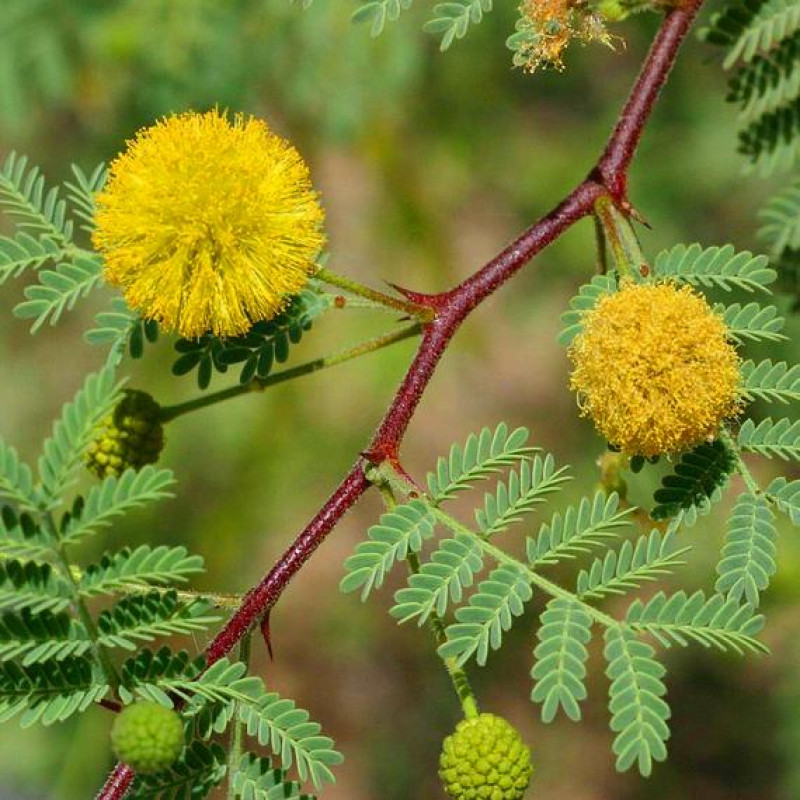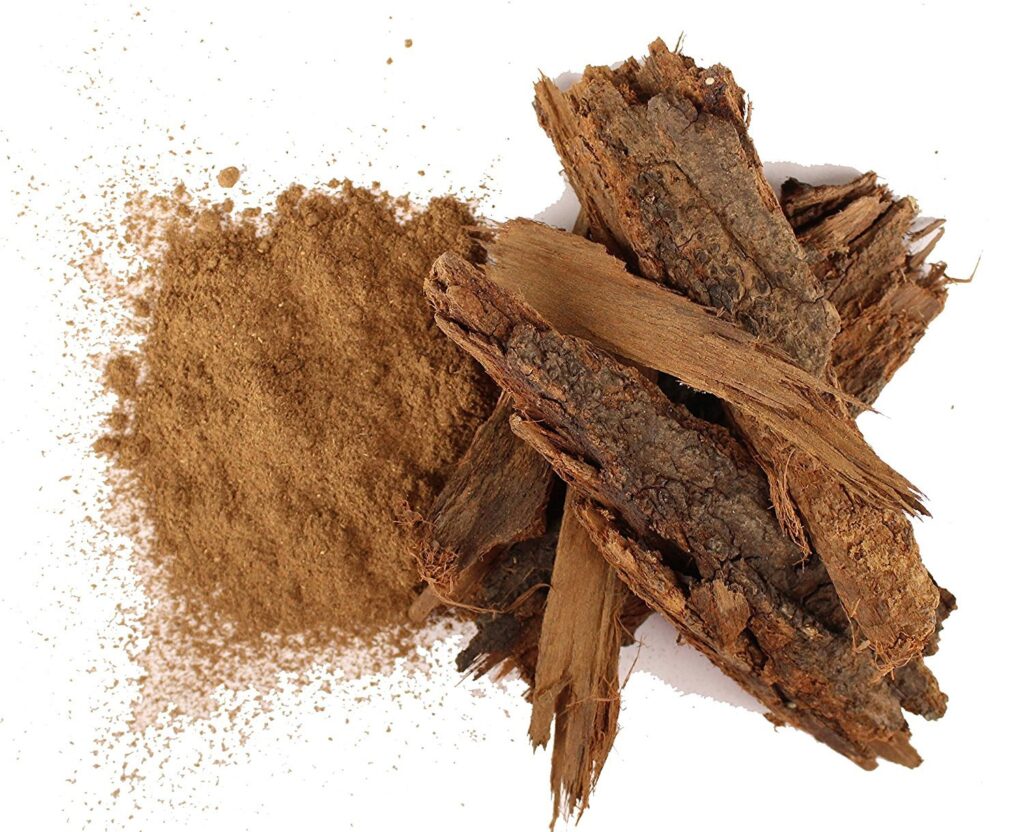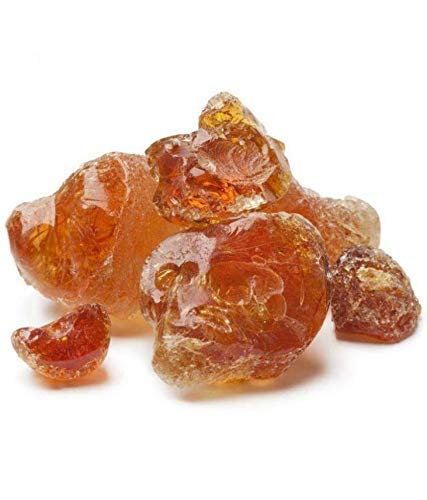What is Babul Tree?

The Babul tree (Vachellia nilotica, formerly known as Acacia nilotica) is a species of thorny tree native to Africa, the Middle East, and the Indian subcontinent. It is commonly found in arid and semi-arid regions, particularly in India and Pakistan. The tree is well-known for its resilience in harsh environments, growing in dry, saline soils where other vegetation may struggle. The Babul tree has feathery, small, bipinnate leaves and yellow, fragrant flowers that bloom in clusters. It produces seed pods that are brown and curved when mature.
Uses
Babul has a variety of uses, especially in traditional medicine and agriculture. Its bark is rich in tannins, which are used in leather production, and its gum is used for medicinal purposes, such as treating infections or skin ailments. The wood of the tree is durable and often used for making furniture, firewood, or fencing. Additionally, Babul leaves and pods are utilized as fodder for livestock. Its ability to fix nitrogen in the soil also makes it beneficial in improving soil fertility.
Medical Use
The Babul tree (Vachellia nilotica) has long been valued for its medicinal properties in traditional medicine. The bark, which contains tannins, is used for its astringent, antibacterial, and anti-inflammatory properties. It is often applied to treat wounds, skin infections, and ulcers. The powdered bark is also used to alleviate toothaches and strengthen gums, making it a common ingredient in herbal toothpaste.
The gum of the Babul tree, known as “Acacia gum,” is used to soothe sore throats, relieve coughs, and treat respiratory issues. It also has mild laxative properties and can be used in the treatment of digestive problems. The leaves and pods of the tree are used to treat diarrhea, dysentery, and other gastrointestinal disorders. Babul is also believed to have benefits in managing diabetes and controlling blood sugar levels.
In Ayurveda, Babul is considered a natural remedy for sexual health issues, and it is used in formulations to improve fertility and treat conditions like premature ejaculation. Its antimicrobial properties also make it useful in treating infections, both internally and externally.
Health Benefits of Babul Bark

Promotes Oral Health
Chewing a few pieces of the Babul plant’s bark can promote oral health. Apart from strengthening your teeth, it can heal your gums since it is rich in astringent properties. It has the power to fight germs and bacteria that cause dental cavities, tooth decay, and gum diseases. Burning the peel and pods to get ash and using it for brushing your teeth can lessen toothache.
Treatment for Sexual Weakness
Babool flower is effective in addressing sexual weakness in both men and women. It helps boost physical energy and strengthens immunity, which enhances sexual performance.
Prevents Premature Ejaculation
In traditional herbal remedies, Babool flower is used to treat premature ejaculation. It calms the body and increases endurance during sexual activity.
Can Treat Diarrhea
One of the many uses of Babul is its potency in curing diarrhea. Using the bark of Babul can help treat diarrhea because the astringent property of Babul helps eliminate the toxins that generate in the body caused by indigestion. It can also boost metabolism, strengthen the intestine, and control loose motion.
Lessens Cough and Cold
The bark of Babul can be beneficial in treating various symptoms related to cough and cold. It also helps alleviate a sore throat. In addition, the compounds in the plant can help liquefy the excess mucus while giving relief from cough and cold.
Aids in Weight Loss
Babul can aid in weight loss by promoting a feeling of fullness, reducing appetite, and enhancing metabolism. Consuming Babul in moderation can help manage weight effectively.
Reduces Cholesterol Levels
Regular consumption of Babul can help lower bad cholesterol levels (LDL) and increase good cholesterol levels (HDL), thus supporting heart health.
Enhances Immunity
Babul contains various vitamins and minerals that can boost the immune system, helping the body fight off infections and diseases more effectively.
Health Benefits of Babul Gum

Control Cancer
In a medical study, the flower, gum and extract of Babul leaf were examined to find its anti-cancer action. It has been found effective in lessening the growth of cancer cells and tumor growth and thus can be used to control cancer. However, cancer is a life-threatening health condition which requires proper diagnosis and treatment. So, it is always a good idea to consult a physician before making any decision.
Joins Fractured Bones
The gum of Babul can work effectively to lessen arthritis pain. It can also aid in joining fractured ends of bones with its natural healing compounds.
Treats Diabetes
It is found that the extract of Babul can work to lower the blood glucose level. It can also help lessen cholesterol and triglycerides. Diabetes is a serious health condition and needs proper diagnosis and management. Therefore, it is wise to consult a doctor before using Babul for treating diabetes.
Health Benefits of Babul Leaves

Promotes Skin Health
Using the leaves of Babul helps to heal skin-related problems such as drying skin, flakiness and itching. Furthermore, the anti-inflammatory, antifungal and antiseptic properties of Babul leaves might be beneficial in treating different skin conditions. In addition, the Babul leaves help to sustain the skin’s liveliness and glow.
Mouth Ulcers
One of the medicinal uses of Babul is that its soft leaves can be helpful in healing mouth ulcers. Similarly, you can use it to relieve pain, stop bleeding gums, and strengthen your teeth.
Heals Stops Hair Fall
Babul leaves are highly beneficial in stopping hair fall and promoting hair growth. Consider applying the paste extracted from Babul leaves on your scalp and let it sit there for around 15-20 minutes. Then, wash it with warm water along with the shampoo. Doing so can stimulate your hair growth and prevent hair fall.
Acts as a Natural Remedy for Wounds
Babul’s antimicrobial and anti-inflammatory properties make it an effective natural remedy for wounds and cuts. Applying a paste made from Babul leaves can promote faster healing.
Side Effects
Like other Ayurvedic plants Babul is well known for its benefits in the medical field. However, it also has some notable side-effects. They include
- Nausea
- Bloating
- Loose Motion
- Conjunctivitis
- Allergic Rhinitis
- Rash




